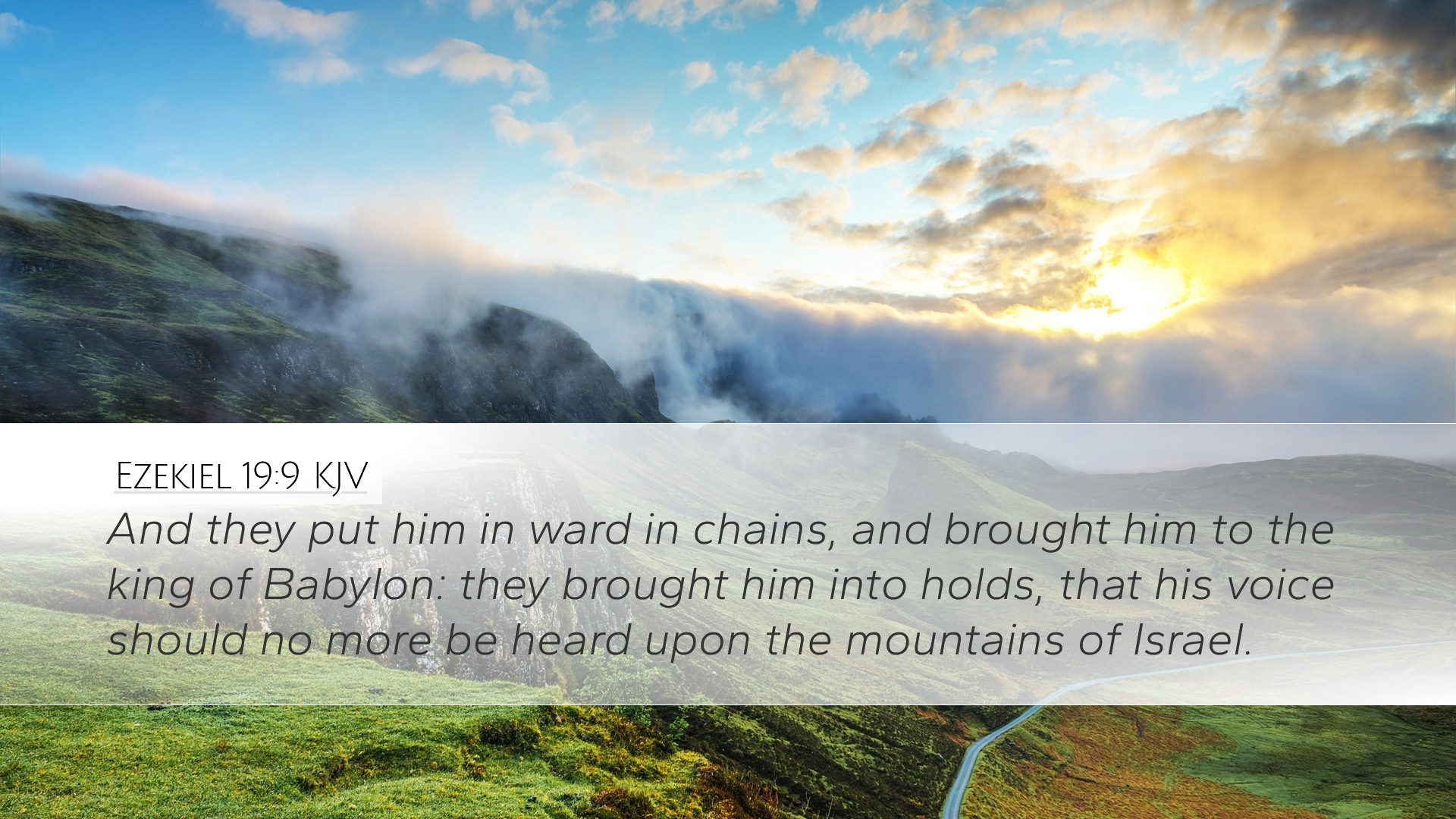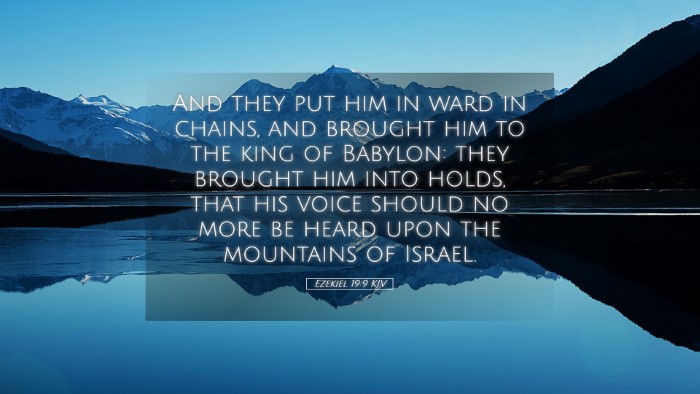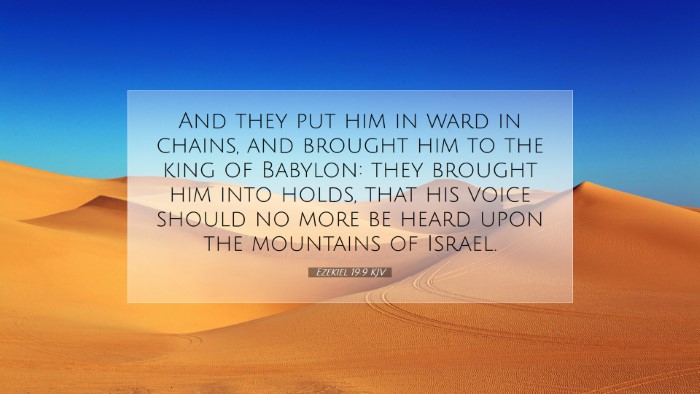Bible Commentary on Ezekiel 19:9
Ezekiel 19:9 states, "And they put him in a cage, and brought him to the king of Babylon; they brought him into holds, that his voice should no more be heard upon the mountains of Israel." This verse is a poignant reminder of the fate of Judah's leaders and the consequences of their rebellion against God.
Contextual Background
The Book of Ezekiel is set during the Babylonian exile, addressing the complexities faced by the Jewish people during this turbulent period. Ezekiel, as a prophet, spoke on behalf of God, conveying messages of judgment mixed with hope. Chapter 19 focuses on the lamentation of the princes of Israel, depicted through allegorical images of lions, representing strength and leadership.
Interpretative Analysis
In this verse, we see powerful imagery utilized to communicate significant theological and ethical truths:
- The Lion Metaphor: Ezekiel compares the leaders of Israel to lions. These lions were once powerful and admired but ultimately captured and caged, representing the downfall of their authority and the destruction of the nation.
- Caging of the Lion: The “cage” symbolizes the oppression and humiliation of Judah's leadership. It indicates that not only were they defeated, but they were also rendered ineffective and voiceless, stripped of their dignity and agency.
- Brought to Babylon: The journey to Babylon signifies exile—a loss of homeland and identity. Being taken to a foreign power reflects God's judgment on Israel for their idolatry and refusal to heed His warnings through the prophets.
- No More Voice: The phrase “that his voice should no more be heard” underscores the ultimate silence of leadership that once roared with authority. This signifies that the cries of true wisdom and righteousness were silenced by the consequences of sin.
Commentary Insights
Matthew Henry
Matthew Henry provides a deeply reflective analysis of this passage. He emphasizes the tragic fall from glory for the leaders of Israel. Initially, they were distinguished and powerful leaders—the lions of Judah. Yet, their rebellion against God led to their capture, which is a lesson on the fragility of earthly power in contrast to divine authority. Henry highlights the sorrow of lost pride and the consequences faced by the nation when its leaders fail to uphold God's commandments.
Albert Barnes
Albert Barnes draws attention to the moral implications of this verse. He notes that the leaders of Judah had been brought low not only by external forces but by their internal decisions and actions that led to their downfall. Barnes connects this back to the themes of accountability and justice. He asserts that just as the lions were subjected to humiliation, so are leaders today called to consider their actions and their impact on the people they lead, reminding ministers and leaders to remain vigilant against complacency and moral failure.
Adam Clarke
Adam Clarke's commentary offers a unique perspective on the literary characteristics of this passage. He points out the symbolic representation of the lion as a dominant figure, and its capture serves as a metaphor for the loss of spiritual vigor within the Israelite community. Clarke emphasizes the overarching message of hope embedded in the lament; although leaders may fall, there is an underlying promise of restoration for the people, as God’s plans are never thwarted by human failure.
Theological Reflections
This verse serves as a theological warning to contemporary leaders. The silence of the lion could represent the church today—a call to restore God’s voice among the people. The insights from Henry, Barnes, and Clarke collectively encourage a return to spiritual fidelity and reliance on God’s strength. As we reflect on this passage, leaders are reminded that their authority comes with a grave responsibility, one that cannot be taken lightly without consequence.
Practical Applications
- Leadership Accountability: Leaders must remember their responsibilities before God and their communities. They are called to lead with integrity and wisdom, acknowledging the weight of their decisions.
- Humility Before God: Like the lions fallen into silence, leaders should approach their roles with humility, recognizing the potential for pride to lead to downfall.
- Restoration Hope: There is always hope in God’s plan for restoration. Even in times of judgment, God’s faithfulness remains, and His people can look forward with assurance for renewal.
Conclusion
Ezekiel 19:9 provides profound insights into the nature of leadership, accountability, and the consequences of disobedience. The combined reflections from public domain commentaries enhance our understanding and invite deeper engagement with the text. Pastors, students, theologians, and scholars are encouraged to glean the wisdom found within this verse, applying its lessons within their contexts, and leading others toward renewed faithfulness in God.


